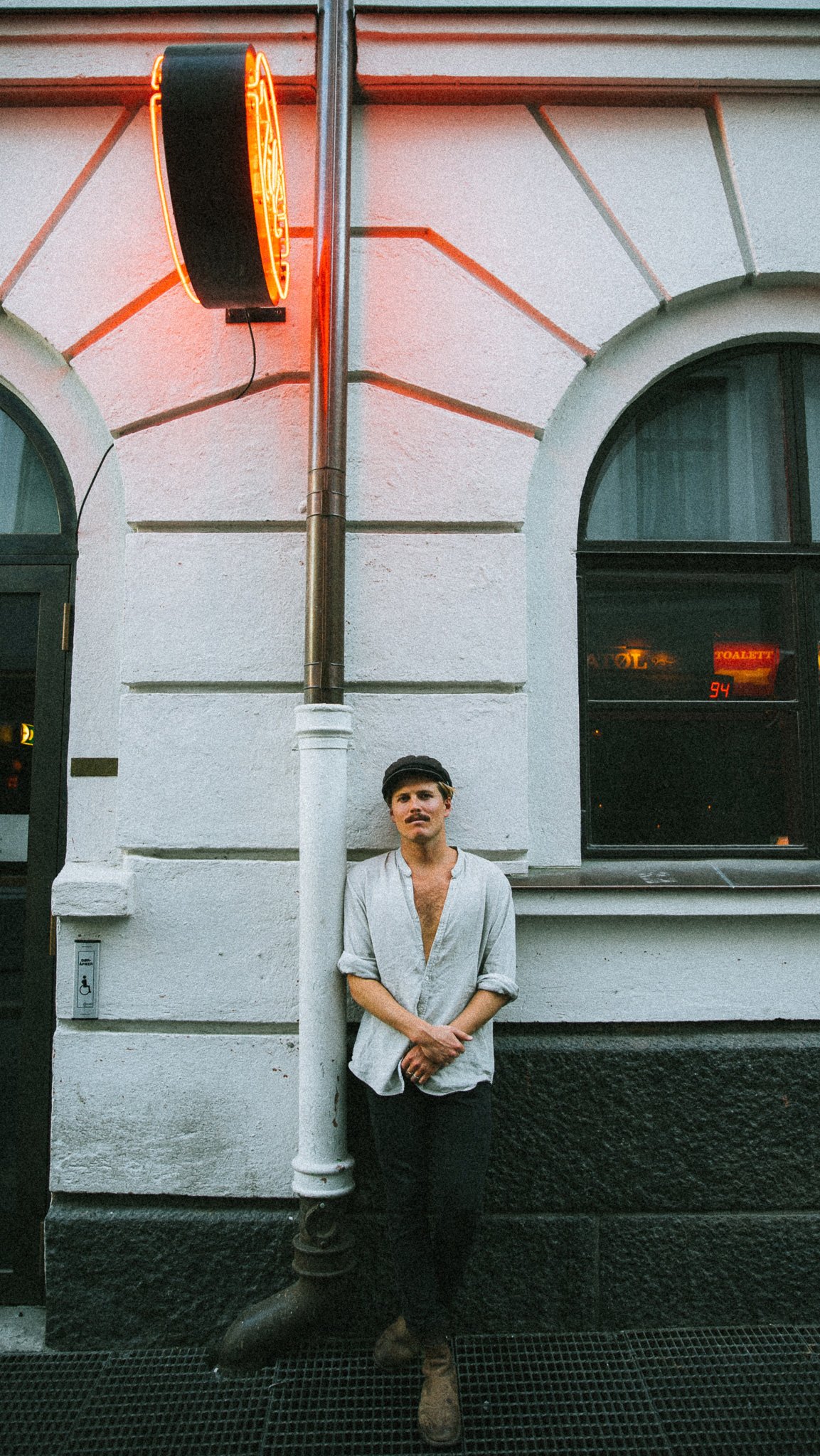An interview with Folk legend Ziggy Alberts.
Original interview appeared in issue 2 of SLOW.

At only 25 years of age he has released five records, started his own label Commonfolk Records, played sold out tours across the world and his music has effortlessly amassed millions of listeners worldwide.
Musically, Ziggy's folk sound has been compared to the likes of Ben Howard and Jack Johnson, who similarly create honest and personal music that explores the relationships with both others and the planet - a subject close to Ziggy's heart as a surfer and environmental enthusiast.
Currently on his biggest tour yet, Ziggy and his close knit team have been gracing the shores of Europe followed by Canada and the States. With nearly all shows being sold out, it is a testament to the message he articulates in his lyrics and the thoughtfulness of his sustainably and responsibly made merchandise.
Ziggy was kind enough to take a moment from his back to back shows to field some questions about life on the road.
You share with your audience your concern for our planet and its inhabitants and your love for the ocean. We know it can be hard to avoid single use plastics when out and about. How have you been able to try and take a sustainable approach on tour and keep waste to a minimum?
“That's exactly how - you just have to try to keep your waste to a minimum in each area of the tour. Rechargeable batteries over single use. Boxed water over plastic bottles. Using our keep cups over disposables. My brother is now cooking on tour, so we have hugely decreased waste by not having takeaway packaging. We are about to implement a green touring initiative with our venues and promoters for the first time on this next tour - that's going to be really exciting. That will have a great impact if successful. We've all got to put onefoot in front of the other, and start somewhere; I'm looking forward to continuing to work on solutions that have an even more positive effect.”
Human's have a way of segregating themselves and defining imaginary lines through states and borders. Travelling the world often lends a perspective that we are not separate, we are just different parts of one planet. What were your thoughts following your recent visit to the Berlin Wall?
“I've been to the Berlin Wall once or twice before, 'but this time, I went to a different section - where there is still the remains of the units that were used as escape routes before all the windows were bricked up and tenants evicted - it was really emotional. I cried being there and cried on stage trying to talk about it.
My mother is Hungarian and escaped communist rule with her family when she was 10. The other side of my family, who were Dutch, hid an American pilot and distant Jewish relatives during the war - and eventually, my great grandfather was killed for it. So many people in our history gave everything for the freedom we have now. I was just overwhelmed with how unaware, and how careless, we can all be - how I can be - with the immense freedom we have today. And therefore, how easily we give it away. I really took away from that day, how much we need to protect our freedoms; to not take them for granted, despite and in respect of its current abundance.”
How does it feel to be able to break through these barriers and bring people together through the shared love of the music you have created?
“It's up there with one of the best feelings in the world. I see songwriting as this contribution to a pool that we all lean into; and what I strive for, when I'm performing, is bringing everyone together with a real sense of unity. It's only possible when people are open to it, so it's not just my doing, we manage to achieve it together - that makes it even better.”
“I really took away from that day, how much we need to protect our freedoms; to not take them for granted, despite and in respect of its current abundance.”
One of the biggest causes we covered in our first issue with Sea Shepherd, was the Great Australian Bight being under threat from Norwegian oil Giant Equinor. You recently played in Norway and spoke of your concerns about the drilling during your concert. What sort of response did you receive?
“Australians, and everyone around the world, need to understand this loud and clear - most Norwegians do not support the Equinor proposal. They just decided as a country to refrain from drilling in Lofoten, which is very similar to our Great Australian Bight. We should only be thankful that its a Norwegian company because Norwegians are open-minded on these issues and are offering us huge support to fight this. The response was incredible and I thank them as a country for their support.”
Photo credits
Image 1 - Photo by Samuel Hall
Image 2 - Photo by Michelle G Hunder
